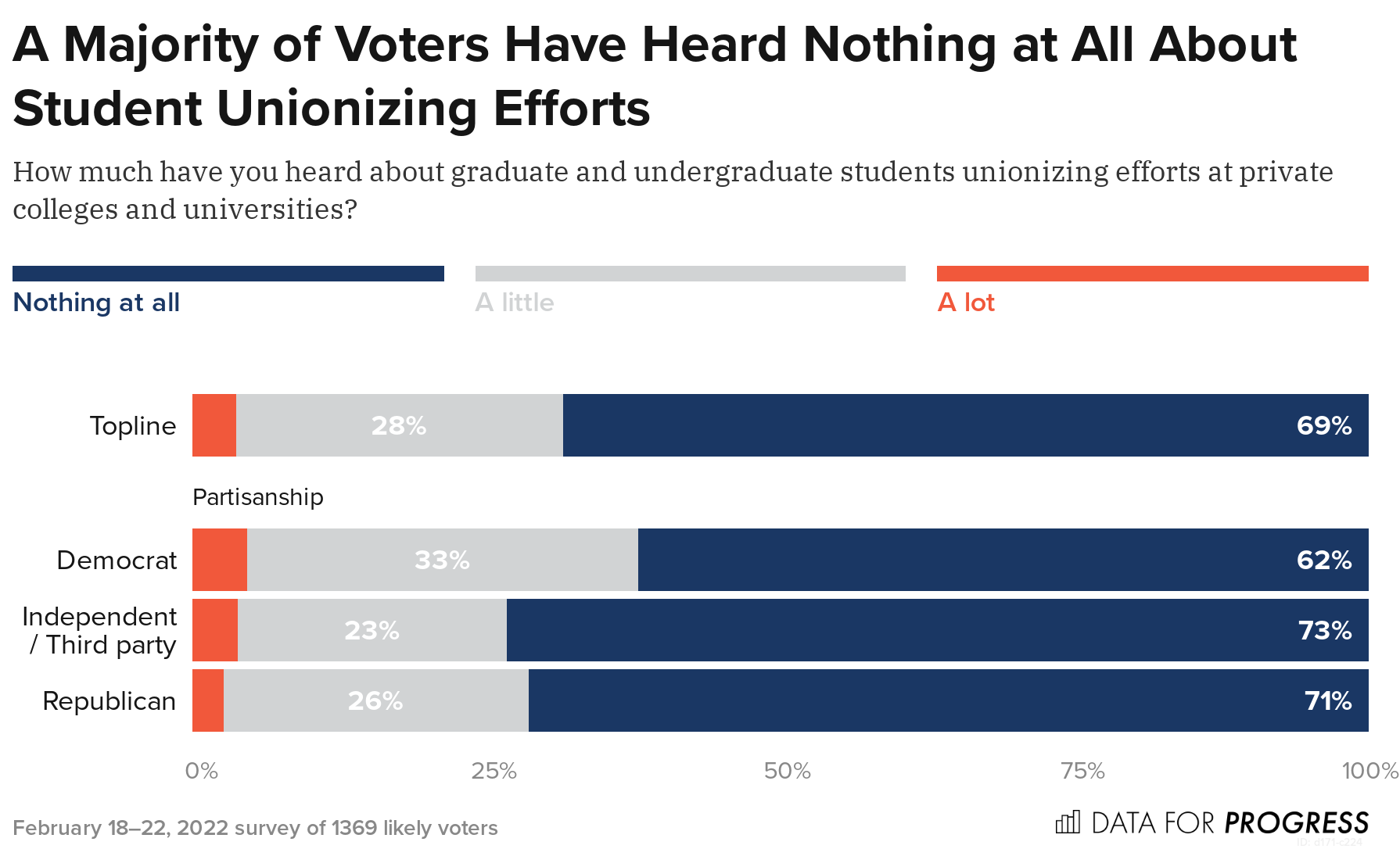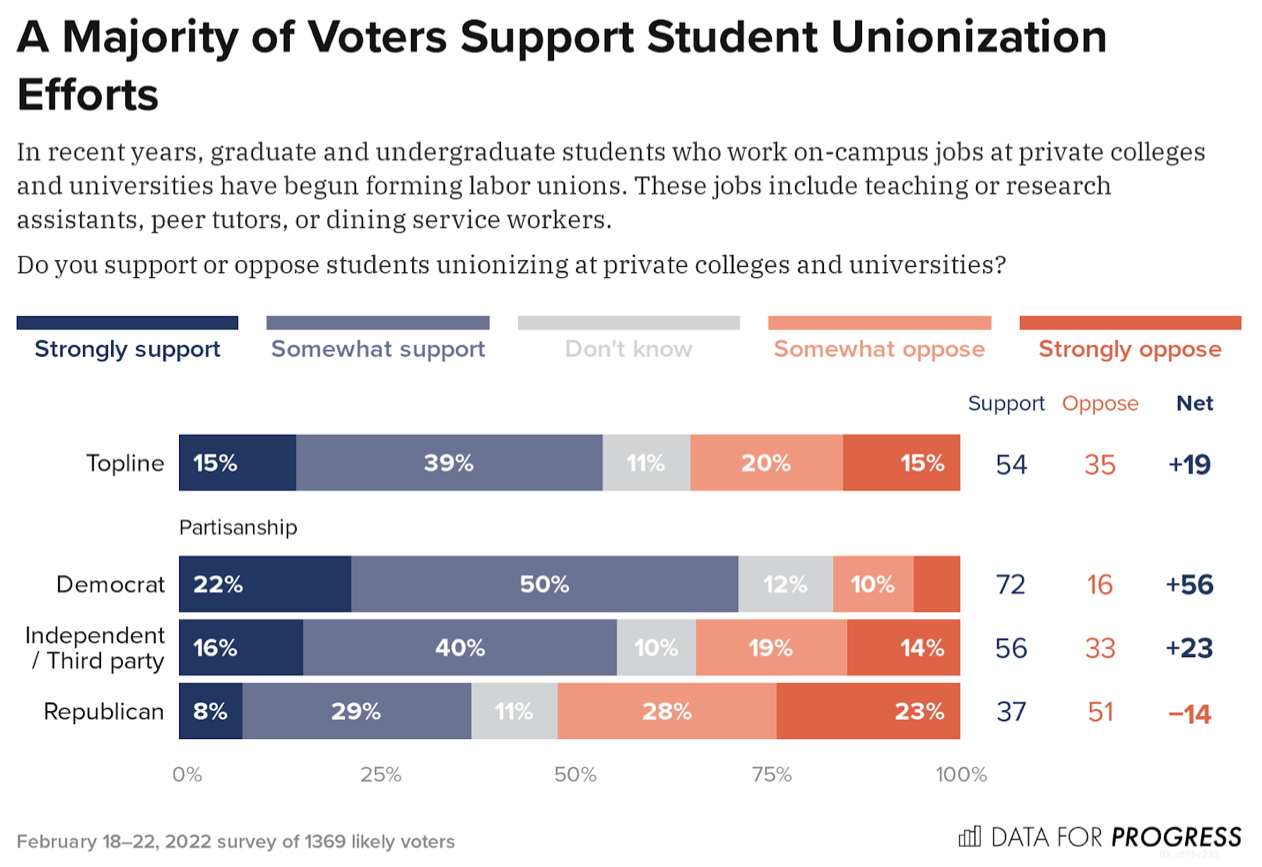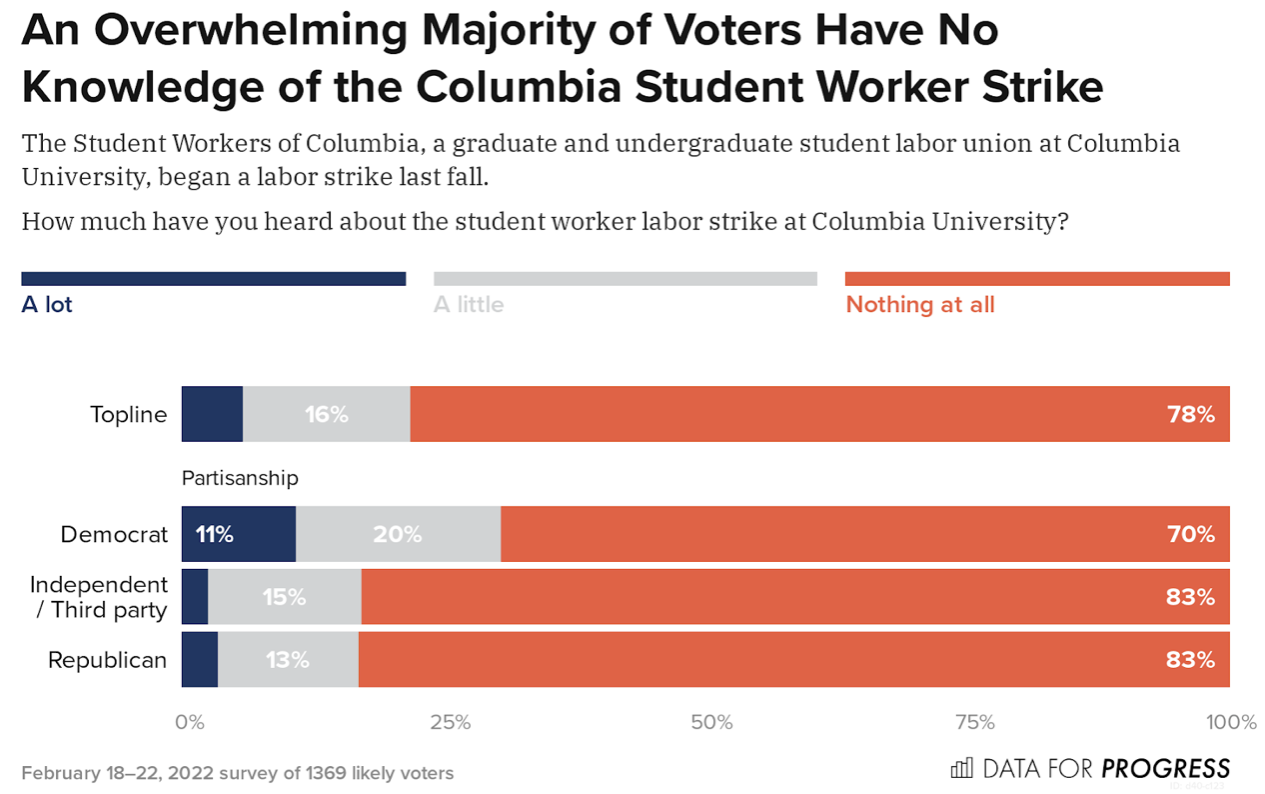Voters Support Student Unionization
By Matt Mazewski and Bella Kumar
Universities have long been a hub for activism and organizing. Student movements have played an important role in many major popular struggles, such as those for greater free speech or civil rights. Columbia University in New York City has been a particularly notable locus of student organizing, having witnessed iconic protests in 1968 against the Vietnam War, the university’s support for military research, and the planned construction of facilities that would have discriminated against local residents.
The latest chapter in the history of organizing in higher education includes the proliferation of graduate and undergraduate student worker unions, which have existed for decades at many public colleges and universities but have only more recently managed to gain a foothold at a significant number of their private counterparts. This movement has, to a large extent, taken off under the radar, with many Americans unaware of these efforts. Polling from Data for Progress shows that 69 percent of likely voters, including 62 percent of Democrats, 73 percent of Independents, and 71 percent of Republicans, report having heard nothing at all about student union drives at private colleges and universities.
After voters are briefed on the issue, however, we find that they decisively support the expansion of academic labor rights. When asked whether they support unionization attempts by graduate and undergraduate students who work on-campus jobs at private colleges and universities, including as teaching or research assistants, peer tutors, or dining service workers, voters back these efforts by a +19-point margin, 54 percent to 35 percent. This includes Democrats by a +56-point margin and Independents by a +23-point margin, along with voters under 45 years old by a +53-point margin, and voters 45 and older by a +1-point margin.
The National Labor Relations Board (NLRB), the agency responsible for interpreting federal labor law, has flip-flopped over the years on the question of whether student workers are protected by the National Labor Relations Act. In its most recent ruling on the question, which came in 2016 as a result of a case brought by a student organizing committee at Columbia together with the United Auto Workers (UAW), the board determined that students who are financially compensated for work done at a private college or university are employees who have collective bargaining rights and are able to unionize. We find that voters support the NLRB’s Columbia decision by a +26-point margin, 57 percent to 31 percent, including Democrats by a +57-point margin and Independents by a +28-point margin. Republicans oppose the ruling by a -2-point margin.
Last fall, the Student Workers of Columbia, the graduate and undergraduate labor union at the center of the 2016 NLRB decision, began a strike in an effort to conclude contract negotiations that had lasted more than two years. The 10-week labor stoppage was the longest in higher education in over a decade. Seventy-eight percent of voters report having no knowledge of the dispute, including 70 percent of Democrats, 83 percent of Independents, and 83 percent of Republicans.
Proponents of student worker unions have advanced a variety of arguments for the importance of labor protections in academia, but we find that voters are particularly receptive to messaging about how unions make it easier for those from less-privileged backgrounds to pursue higher education. Our polling shows that 58 percent of voters agree that unionization allows student workers to negotiate for increased wages, and makes academia more accessible for lower-income students by making it easier for them to pay for food and afford rent, especially in places with a high cost of living. This support includes 58 percent of Democrats, 66 percent of Independents, and 54 percent of Republicans.
Unionization efforts at colleges and universities have not received as much media attention as other recent upsurges of labor activism, including strikes at major employers like John Deere and Kellogg’s, or union elections at Amazon warehouses and Starbucks shops. Nevertheless, our polling shows robust public support for extending the protections of federal labor law to student employees. While the current pro-worker majority on the NLRB abandoned the previous Trump appointees’ efforts to unravel the Columbia decision, the threat that it may one day be rescinded still exists. Lawmakers should work to codify this ruling and ensure that academic workers’ rights are put on a more secure foundation.
Matt Mazewski (@mattmazewski) is a fellow at Data for Progress
Bella Kumar (@bellakkumar) is a communications intern at Data for Progress.





